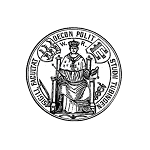Faculty of Economics at the University of Tübingen
The Economics Faculty of the University of Tübingen began on October 17, 1817 as the "State Economics Faculty" with five chairs and has produced a number of important professors; including as honorary professors since 2005 ECB chief economist Jürgen Stark and since 2003 the former Federal President Horst Köhler . There are currently eighteen professorships: nine in business administration, six in economics, one in economic history and two in statistics and econometrics .
At the University of Tübingen, business administration is not perceived as being separate from economics. This has led to the integration of economics modules into business administration courses. In business administration, modules in micro- and macroeconomics as well as economic and financial policy must also be completed.
In 2006 the bachelor's degree "International Business Administration" was introduced. The course supplements the core business studies with internationally oriented events, training in two foreign languages or one East Asian language and a stay at partner universities abroad. In addition, in the main course, a cultural-scientific focus can be placed on the culture of the country from which the language was learned. In this case, a note is added to the title (for example, “BSc. In International Business Administration and East Asian Studies”). The faculty thus offers three bachelor's degree programs. A large number of applications (also due to the faculty's very extensive marketing efforts) lead to selection procedures (criteria: above all high school graduation grade, individual interviews, extracurricular involvement).
In the current CHE Ranking 2011, both Tübingen economics and business administration belong to the top group in the categories “International Orientation” and “Internationally Visible Publications” (as of 2011). Nevertheless, there is a certain discrepancy in the study situation and economics is rated better than business administration. According to the ZEIT ranking, the inclusion of students in the evaluation of teaching is particularly positive in business studies. When it comes to supervision and e-learning, however, Tübingen is in the bottom group. In the area of economics, teaching is consistently rated more positively, only when it comes to e-learning is Tübingen in the bottom group (as of 2008).
literature
- Karl Erich Born: History of economics at the University of Tübingen 1817 - 1967. State economics faculty, political science faculty, economics department of the law and economics faculty , Mohr, Tübingen 1967.
- Immo Eberl / Helmut Marcon: 150 years of doctorate at the Economics Faculty of the University of Tübingen. Biographies of the doctors, honorary doctors and post-doctorates 1830-1980 , Theiss, Stuttgart 1984, ISBN 3-8062-0409-8 .
- Helmut Marcon (edit.): 200 years of economics and political science at the Eberhard-Karls-Universität Tübingen. Life and work of the professors; the economics faculty of the University of Tübingen and its predecessors (1817 - 2002) , two volumes, Steiner, Stuttgart 2004, ISBN 3-515-06657-8 .
- Eberhard Scheich / Heinrich Strecker / Günter Randecker: Dr. rer. pole. 175 years of doctorate at the economics faculty of the Eberhard-Karls-Universität Tübingen , Steiner, Stuttgart 2009, ISBN 978-3-515-09240-1 .
- Joachim Starbatty / Heinrich Strecker / Günter Randecker: Over 400 semesters. Economics lectures at the Eberhard Karls University of Tübingen 1798 - 2013 , Lucius & Lucius, Stuttgart 2014, ISBN 978-3-8282-0601-4 .
Web links
source
- Department of Economics in the current CHE Ranking 2011
- Business Administration in the current CHE Ranking 2011
- Presentation of the "International Business Administration" course on the website of the Faculty of Economics and Social Sciences
Coordinates: 48 ° 31 '41.3 " N , 9 ° 3' 42.3" E
